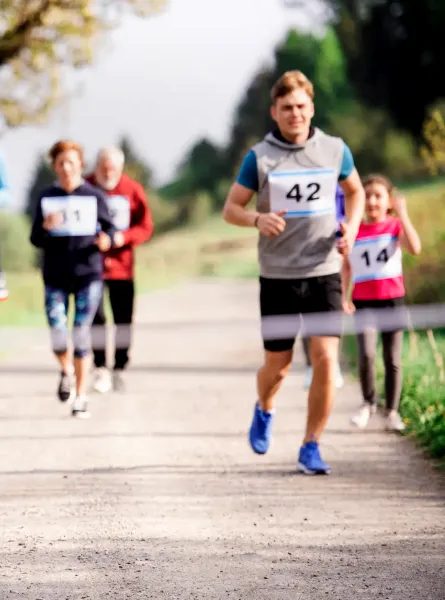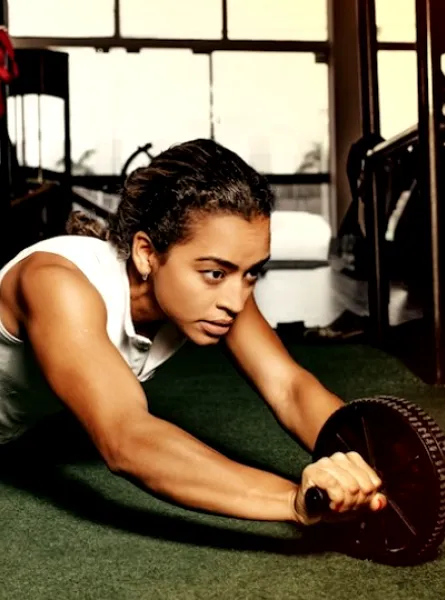
Whether you’re a weekend warrior, a dedicated runner, or a strength training enthusiast, nutrition plays a key role in your performance and recovery. Think of your body as a car: without the right fuel, it may struggle to get going!
Eating well before, during, and after physical activity can make all the difference between a great workout and a tough session. Let’s take a look at how you can adapt your nutrition to get the most out of your body.
1. Before Exercise: Fuel Your Body for Movement
1.1 The Right Fuel: Carbohydrates Take the Spotlight
Carbohydrates are your muscles' main source of energy. Before a workout, they’re your best friend! The closer you get to your activity, the more you should focus on simple carbs (which digest quickly). Avoid foods that are high in fibre, fat, or protein right before training, as they can be harder to digest.
What to eat before working out, depending on the time remaining:
- 3–4 hours before: A balanced meal with protein, carbs, and fibre. Limit high-fat meals, as they digest more slowly.
- Chicken breast with rice and cooked vegetables
- Stir-fried tofu and vegetables over rice vermicelli
- 2 hours before: A light meal or snack mainly made up of carbohydrates, with a small amount of protein and fibre for better support.
- A bowl of cottage cheese with berries and granola
- A fruit smoothie with Greek yogurt and milk or plant-based beverage
- 30 minutes to 1 hour before: A snack rich in simple carbs, low in fibre, fat, and protein.
- A fresh fruit (banana, apple, or pear)
- A slice of white bread with honey
- Unsweetened applesauce
- A sports drink with carbohydrates
Try different options to find what works best for you!
1.2 Hydration: Essential for Performance
Drinking water before your workout helps ensure carbs are effectively transported to your muscles and helps prevent early fatigue. Dehydration can seriously affect your performance—causing nausea, headaches, heart palpitations, dizziness, and even trouble breathing.
Why is it crucial?
Each gram of glycogen (the energy stored in your muscles and liver) is stored with 2.7 g of water. If you’re dehydrated, your body stores less energy, which can lead to lower endurance, muscle cramps, and poor regulation of your body temperature. Aim to drink 500 mL of water two hours before your workout and 250 mL just before starting.
Coffee Before a Workout: A Natural Boost!
Coffee is a simple and effective way to enhance performance. Caffeine acts as a stimulant, boosting alertness, lowering your perception of effort, and increasing endurance. For optimal effect, consume 1 to 3 mg of caffeine per kg of body weight about 30–60 minutes before exercise. Unlike commercial pre-workouts, coffee is natural and additive-free.
Caffeine affects everyone differently. If you're sensitive, start with a small dose to avoid side effects (nervousness, digestive issues). Also, avoid caffeine before evening workouts if you have trouble sleeping.
2. During Exercise: Adjust to Intensity and Duration
2.1 Carbohydrates as Your Energy Source
The length and intensity of your workout determine your energy (carbohydrate) needs during activity:
%20(1).webp)
Examples of carbohydrate sources during exercise:
- Sports drinks (Gatorade, Powerade, or homemade versions)
- Energy gels
- Dried fruits (e.g., dates, figs, raisins)
- Sport gummies
- Ripe banana
- Applesauce
Split your carb intake every 20–30 minutes for better digestive comfort and to avoid sudden energy crashes.
2.2 Hydration During Exercise: Crucial for Performance
As you exercise, you sweat to regulate your temperature, which leads to water and electrolyte loss (sodium, potassium, magnesium, etc.). Even mild dehydration can:
- Reduce your endurance
- Increase your heart rate
- Affect your focus
To prevent this, aim to drink 150–250 mL of water every 15–20 minutes during exercise, adjusting for intensity and weather.
A Word About Electrolytes
Electrolytes are especially important if your workout lasts over an hour, is intense, or takes place in hot/humid conditions. Heavy sweating causes sodium loss, which can lead to muscle cramps and reduced performance.
In these situations, opt for a drink with electrolytes (sports drink, coconut water, or electrolyte tablets). For sessions under an hour at moderate intensity, plain water is usually enough.
3. After Exercise: Support Recovery
The post-workout period is key for replenishing your reserves and helping your muscles recover.
3.1 Protein: Repair and Strengthen Muscles
Muscles experience small tears during exercise. Protein helps repair them and supports muscle growth. Aim for 0.4 to 0.6 g of protein per kg of body weight per meal. A sports dietitian can help determine your specific needs.
Top protein sources include:
- Eggs, cottage cheese, Greek yogurt
- Fish, lean meats, tofu
- Legumes, tempeh
Protein Powders: Helpful, But Not Essential
Protein powders can help you meet your daily needs, especially if your diet falls short (e.g., due to time constraints, low appetite, vegetarian diet). They're convenient after workouts, but not necessary if you get enough protein from food.
Mix a serving (about 20–30 g of protein) with water, milk, or a smoothie. Great when time is short—but whole foods are ideal when available, as they also provide important nutrients for recovery and regeneration.
3.2 Carbohydrates: Refuel Your Energy Stores
After exercise, your body needs to restore its glycogen reserves. The closer your next workout is, the more important carbs become. Eating carbs helps reduce fatigue and supports muscle repair and growth.
Post-workout meal ideas with carbs and protein:
- Quinoa bowl with chicken and grilled vegetables
- Smoothie with banana, milk, and protein powder
- Greek yogurt bowl with berries and granola
Contrary to popular belief, you don’t have to eat immediately after your workout—unless you have another session later in the day, or you trained on an empty stomach.
4. Nutrition: A Powerful Tool to Optimize Your Training
Eating well around your workouts can dramatically improve your performance and recovery. A balanced diet gives you more energy, prevents slumps, and helps you make the most of each session.
In summary:
- Before exercise: Prioritize simple carbs and hydrate well.
- During exercise: Adjust carb intake based on duration and intensity.
- After exercise: Ensure good protein and carb intake to recover effectively.
Don’t forget: Everybody is unique—there’s no one-size-fits-all approach. The length and intensity of your training, weather conditions, and even your digestive tolerance all affect your needs.
That’s where working with a registered dietitian can make all the difference. By tailoring your nutrition to your lifestyle, metabolism, and goals, they’ll help you meet your needs and avoid mistakes that can hinder your progress. Book an appointment with a sports dietitian today and take your performance to the next level!





